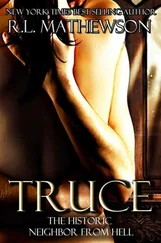She called Roy over and showed him the doll. “This is the one Dewey is in love with,” she hissed.
“Where did it come from?” asked Roy.
“A manor-house over Longborough way. Rats! I just knocked at the door and asked for contributions. Don’t even know their name.”
Roy looked excited. “Phone Dewey and get him over here. Can it be the same one?”
“It looks the same to me. But I can’t imagine Dewey parting with it. Get me a phone book. There should be one over at the back of the church hall next to the kitchen.”
She waited impatiently until Roy came back with the phone book. She scanned the pages until she found the number of Dewey’s shop and phoned it. Roy fidgeted impatiently while Agatha spoke rapidly into the phone. When she rang off, she turned gleaming eyes to him. “It’s not his but he’s locking up the shop and coming over. I don’t know the price of these things. I wish I knew more about antiques. I could be selling old masters for a few pounds, for all I know.”
“Make it an auction,” said Roy. “Announce that because there are valuable items on the stall, you will start the auction at eleven o’clock. Take that big card which says WHITE ELEPHANT STALL, turn it over and write AUCTION in big letters.”
Agatha did as she was told and then waited and waited. Buyers circled around, trying to purchase things, but Agatha remained adamant. They would just need to wait until the auction started. She got Mrs. Bloxby to organize a microphone for her.
When the press arrived, she tipped them off – hopefully – that she meant to gain thousands from the auction and then introduced them to Roy, describing him as a top London executive.
Dewey arrived just before eleven o’clock. “Where’s the doll?” he asked.
“You’ll need to wait for the auction,” said Agatha.
“Just let me see it!” There was a light film of sweat over his face and his eyes were glittering.
Agatha held it up. He drew in a sharp breath. “I’ll give you two hundred for it.”
“You’ll need to wait with the others,” said Agatha firmly.
On the stroke of eleven, Agatha started the auction with the oil painting. She felt like an amateur. She did not even know the name of the painter because the painting was so dirty, the signature was obscured. But she bravely spoke up. “Who’ll give me one hundred pounds? Starting the bidding at one hundred.”
The large crowd shifted and swayed. A man scratched his eyebrow. Was that a bid?
“As we have professionals here as well as non-professionals,” called Agatha, “instead of signalling, I must ask you to shout out your bids.”
Silence. Then the man who had scratched his eyebrow called out, “One hundred and fifty.”
Silence again. Wasn’t bad for a ratty old painting, thought Agatha, picking up her hammer, a kitchen hammer, as no auctioneer’s gavel had been available. “Going, going…”
“Two hundred,” called another voice.
The crowd around the white elephant stand began to get thicker. The bidding rose and rose. The painting was finally sold for twelve hundred pounds. Agatha guiltily hoped that the people who had given her the painting were not in the crowd.
And so it went on. Auction fever was gripping the crowd. Some of the villagers were bidding wildly for the rubbish they had ignored the year before.
At last, Agatha held up the doll. The bidding went up and up until Dewey suddenly called out shrilly, “Two thousand pounds!”
There was a startled silence. Dewey stared at Agatha, his eyes mad with longing. Agatha took pity on him. “Going, going, gone. Sold to Mr. Dewey,” she said quickly.
After that, the excitement died down. Dewey wrote out a cheque and tenderly took the doll in his arms. “The money is going to a very good cause,” said Agatha. Roy, who had persuaded Miss Simms to take over the tombola stall, came hurrying up. Agatha introduced him. “I’m ever so interested in antique dolls,” gushed Roy. “Can we have a chat?”
“No,” said Dewey harshly, “I shut up my shop to come to this auction. Got to get back.”
“I’ll come with you. I’m ever so madly keen on antique dolls and I must say, that one you got is the most fascinating and beautiful thing I’ve ever seen.”
Dewey’s eyes darted suspiciously from Agatha’s face to Roy’s. Then he said reluctantly, “All right.”
Roy trotted off after him. Agatha longed to follow as well, but the remaining items which no one had seemed interested in bidding for might still be sold. New visitors were arriving. So she put price cards on the remainder and stood there patiently, her feet beginning to ache dreadfully. Where had the days gone when she could run around all day in very high heels and not even feel a twinge? Agatha felt the autumn of her life stretching in front of her.
She looked around the crowd, searching for a victim to take over the stand for her so that she could give in and find a pair of flat shoes. She saw Mrs. Allan, Carsely’s battered wife, and called to her. Mrs. Allan came up to Agatha. Although she was only in her thirties, she had stooped shoulders, as if from a lifetime of warding off blows. “Could you take over for me?” asked Agatha.
“I dunno. I ain’t never auctioned nothing.”
“The auction’s over. I’ve put the price tickets on everything. I’ll give Mrs. Bloxby the cheques.”
“Oh, all right, then,” said Mrs. Allan. “Ain’t it hot?” She removed a limp white cardigan and draped it over the edge of the stall. Underneath the cardigan, she was wearing a skimpy blouse. Agatha’s eyes sharpened. There was a nasty bruise on one of Mrs. Allan’s thin arms. “What happened there?” she asked, pointing to the bruise.
“Oh, that? Ever so clumsy, I am. Hit it on the door.”
Agatha headed off to find Mrs. Bloxby and handed her a pile of cheques and notes. “There must be a fortune here, Mrs. Raisin,” said Mrs. Bloxby. She turned to her husband, the vicar. “Alf, isn’t she marvellous? Don’t you just feel like giving Mrs. Raisin a great big hug?”
The vicar shied like a startled horse. “Good heavens, is that the time?” he exclaimed. “Got to see someone,” and ran off as fast as he could.
“I’ve got to get home,” said Agatha. “My feet are killing me.”
“Such a pity. Those shoes look really glamorous.”
Agatha smiled. Mrs. Bloxby had a knack of saying the right thing. A lesser woman would have said, “Why don’t you wear sensible shoes?”
“I’ve left Mrs. Allan in charge. She’s got a terrible bruise on one arm. Can it be the husband? He’s out of the picture, isn’t he?”
“As far as I know. But the trouble with that kind of woman – I don’t mean to sound patronizing, but sometimes I despair – is that they get rid of one villain and pick up another.”
“Why?”
“I’ve been told that women who don’t think much of themselves gravitate to people who’ll make them feel even worse about themselves. It’s amazing how they get rid of one and then marry again, the same type.”
“Has she got anyone?”
Mrs. Bloxby sighed. “Not that I know of, and if she has, there is nothing I can do about it but sit and wait until it gets too bad again and then step in and try to pick up the pieces. Off you go. You’ve done splendidly. The doll! What an enormous amount of money.”
“That was Melissa’s ex-husband, the one before Sheppard.”
“Really? He looks quite mad. I hope he does not regret spending such a vast amount of money. But these antique dolls can be really valuable.”
“I only hope that the people who donated the doll don’t come after me and demand the money,” said Agatha.
“Who was it?”
“Big manor-house. Over by Longborough. Big cedar tree outside.”
Читать дальше












